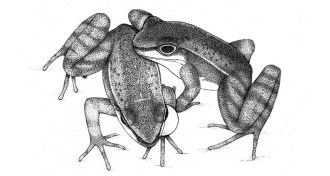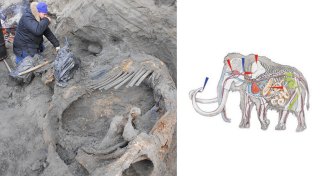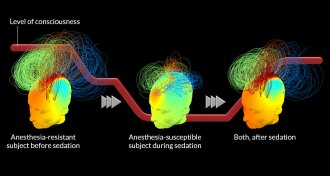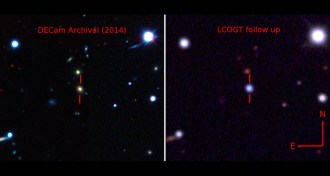All Stories
-
 Health & Medicine
Health & MedicineLow-fiber diets make gut microbes poop out
A low-fiber diet makes for low bacterial diversity in mice. A new study shows those mice can then pass a denuded microbiome on to their offspring.
-
 Animals
AnimalsTorrent frog flirting is complicated
The courtship displays of Brazilian torrent frogs entail a subtle but sophisticated slew of songs and movements.
-
 Life
LifeSearch is on for missing pieces in puzzle of male genital diversity
The debate over extreme diversity of male genitalia needs to rethink the female side. And the landscape.
By Susan Milius -
 Archaeology
ArchaeologyHumans visited Arctic earlier than thought
Human weapon injuries on mammoth bones show humans were in the Arctic up to 15,000 years earlier than researchers thought.
-
 Neuroscience
NeuroscienceMeasuring brain waves may help predict a patient’s response to anesthesia
Brain signatures hint at whether a person will resist or succumb to anesthesia.
-
 Astronomy
AstronomyExploding star is the brightest supernova ever seen
The brightest known supernova put out more energy than 500 billion suns.
-
 Astronomy
AstronomyAs first run of gravitational wave search winds down, rumors abound
Advanced LIGO has completed its first search for gravitational waves. Researchers are crunching the data as rumors swirl of a detection.
By Andrew Grant -
 Environment
EnvironmentPCB levels still high in Europe’s killer whales, smaller dolphins
PCBs banned for decades still show up at extremely high concentrations in Europe’s killer whales and other dolphins.
By Susan Milius -
 Animals
AnimalsAlien species fly on the wings of ducks and other waterbirds
Ducks, geese and other waterbirds can transport nonnative species and help alien invaders establish themselves.
-
 Science & Society
Science & SocietyInsights into sexes’ differing responses to stress
Chronic stress takes its toll on everyone. One of our reporters follows a line of research suggesting that stress hits women harder (or at least differently) than men.
By Eva Emerson -
 Astronomy
AstronomyReaders ponder mysterious origins of oxygen on comets and Earth
Readers pondered the origins of oxygen within a comet and during Earth's history.
-
 Life
LifeSigns of food allergies may be present at birth
Overactive immune cells may prime babies for food allergies.